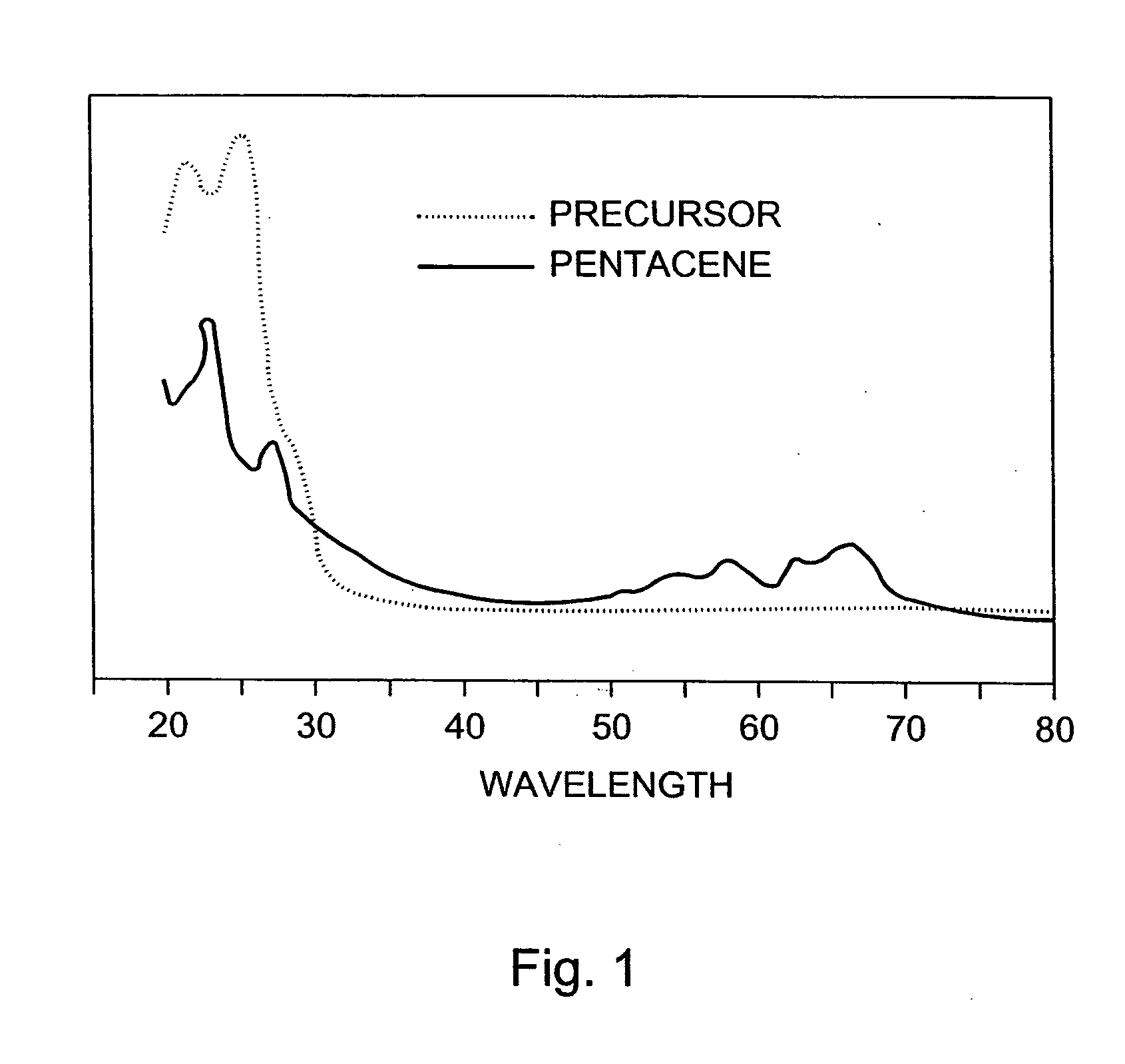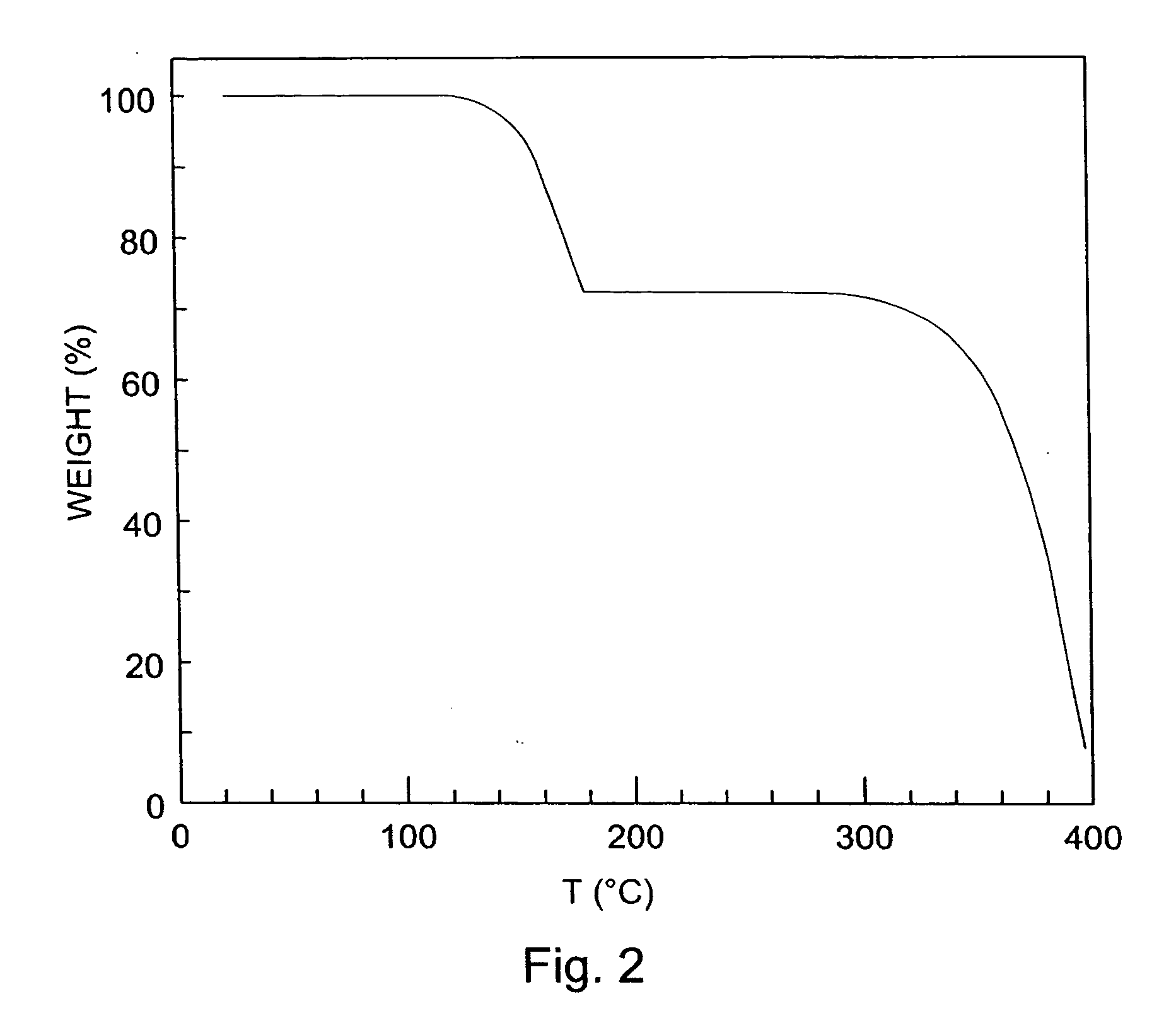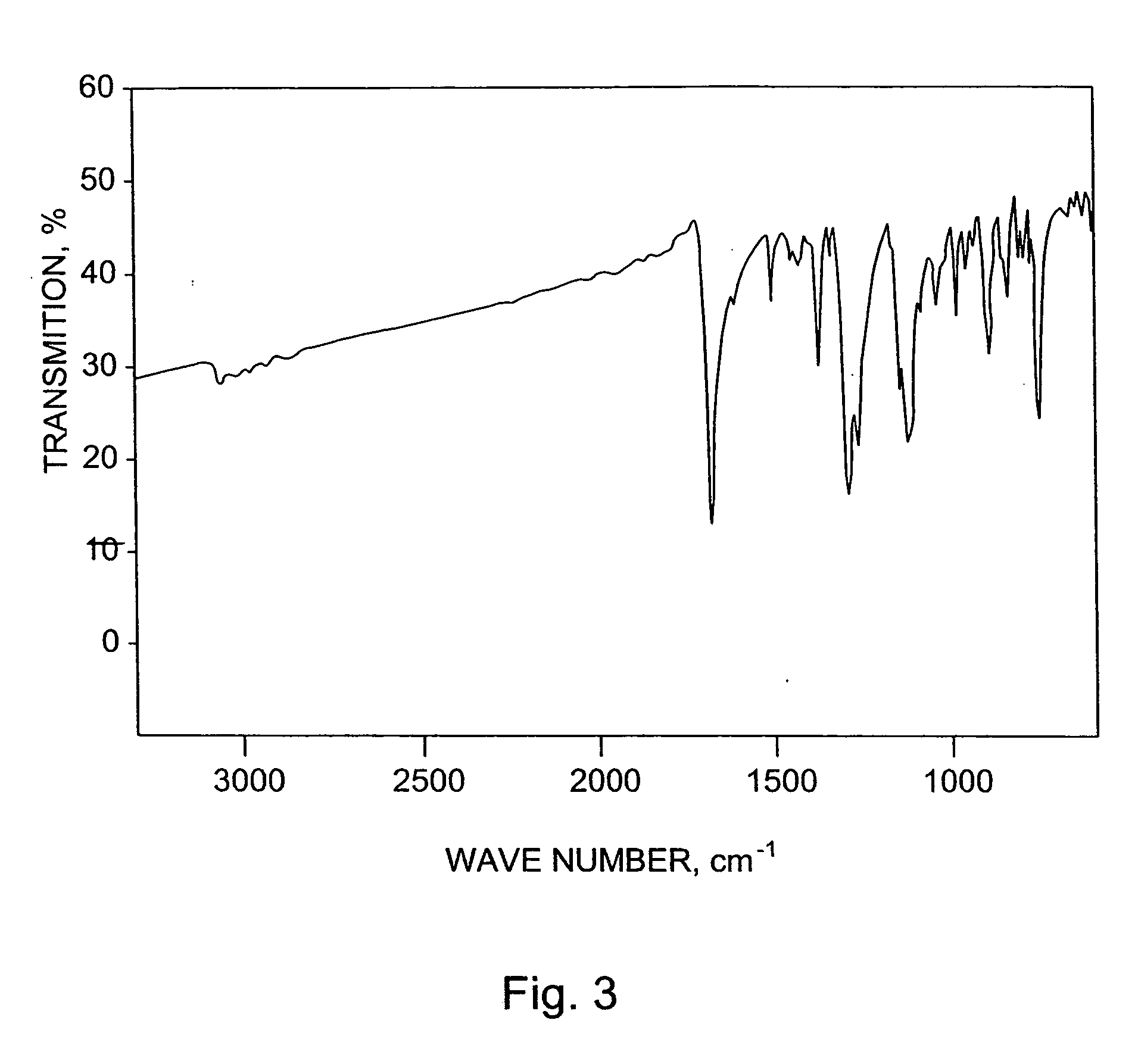Hetero diels-alder adducts of pentacene as soluble precursors of pentacene
a pentacene and soluble precursor technology, applied in the field of synthesis of various dielsalder adducts of polycyclic aromatic compounds, can solve the problems of relatively low carrier mobility, less than 100 on/off ratio, and even less desirable application as semiconductor devices
- Summary
- Abstract
- Description
- Claims
- Application Information
AI Technical Summary
Problems solved by technology
Method used
Image
Examples
example 1
[0152] Diels-Alder adduct of pentacene and dimethylazodicarboxylate. Pentacene (834 mg, 3 mmole) and methyl rhenium trioxide (50 mg) were added to a solution of dimethylazodicarboxylate (1.05 g, 6 mmole) in 40 mL of anhydrous chloroform and the solution was refluxed for 18 hours. By this time all the pentacene was dissolved and a yellow clear solution was formed. The solvent was evaporated on rotary evaporator and the residue was flash chromatographed on a column of silica gel first eluting with 9:1 hexane ethyl acetate to remove excess dimethylazodicarboxylate and then elution with 50:50 hexane ethyl acetate gave, after removal of the solvent, the adduct as white powder (1.65 gram, 90% yield), m.p.=273-275° C., onset of decomposition (conversion back to pentacene) at 285° C. IR, KBr: 1754 and 1701 cm− (carbonyl groups). Exact procedure was followed and adducts of pentacene with diethyl azodicarboxylate (m.p=292-294° C.), dibenzylazodicarboxylate (m.p=295-297° C.) and bis-trichloroe...
example 2
[0153] Diels-Alder adduct of N-Sulfinyl acetamide and pentacene: Pentacene (556 mg, 2 mmole) was added to a solution of N-sulfinyl acetamide (prepared according to procedure reported by Kin et al., in “New facile synthesis of N-sulfinylamine derivatives using N,N′-sulfinylbisimidazole and N-(chlorosulfinyl)imidazole, Tetrahedron Lett., Vol. 26, 1985, pages 3821-3824) (420 mg, 4 mmole) containing 30 mg. of methyl rhenium trioxide. The mixture was refluxed for 4 hours. The solution was cooled to room temperatures and the solvent was evaporated on rotary evaporator. Excess N-sulfinyl acetamide was removed in high vacuum and the brown solid residue was flash chromatographed on a column of silica gel eluting with 1% methanol in chloroform to give the adduct (690 mg, 91%) as white powder which was crystallized from 2:1 toluene-ethanol. m.p=140-142 (dec.). IR (KBr), 1675, 1376, 1282, 1124 and 893 cm−1. Thermogravimetric analysis (FIG. 2), weight loss of 27% starting at 140° C.
[0154] Alter...
PUM
| Property | Measurement | Unit |
|---|---|---|
| temperature | aaaaa | aaaaa |
| temperature | aaaaa | aaaaa |
| temperatures | aaaaa | aaaaa |
Abstract
Description
Claims
Application Information
 Login to View More
Login to View More - R&D
- Intellectual Property
- Life Sciences
- Materials
- Tech Scout
- Unparalleled Data Quality
- Higher Quality Content
- 60% Fewer Hallucinations
Browse by: Latest US Patents, China's latest patents, Technical Efficacy Thesaurus, Application Domain, Technology Topic, Popular Technical Reports.
© 2025 PatSnap. All rights reserved.Legal|Privacy policy|Modern Slavery Act Transparency Statement|Sitemap|About US| Contact US: help@patsnap.com



